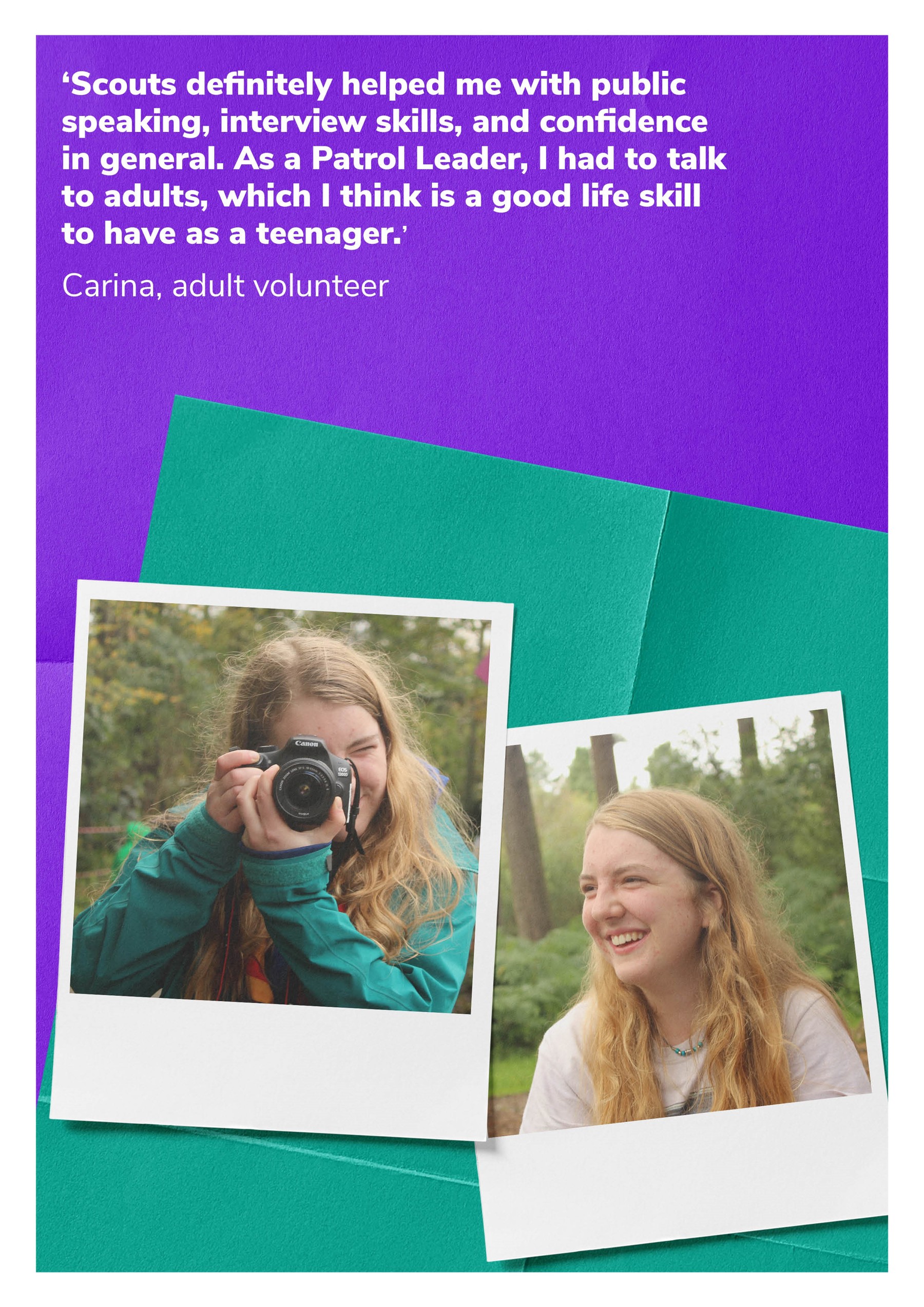Inclusivity
Contents
- Welcome from the Chair
- Different thinking for a different world
- Safety first
- Our purpose and method
- Vision and strategic objectives
- Skills for Life: Our plan to prepare better futures 2018–2025
- Growth
- Inclusivity
- Youth Shaped
- Community Impact
- Three pillars of work
- Programme
- People
- Perception
- Theory of Change
- Theory of Change (diagram)
- The impact of Scouts on young people
- Our finances
- Trustees’ responsibilities
- Independent Auditor’s Report to the Trustees of The Scout Association
- Consolidated statement of financial activities
- Balance sheet
- Statements of cash flows
- Our members
- How we operate
- Governance structure and Board membership – 1 April 2020 to 31 March 2021
- Our advisers
- Our thanks
- Investors in People
Inclusivity
Everyone should feel fully included, able to participate, and able to be themselves in Scouts. This year, we continued work to make equality, diversity and inclusion integral to who we are, how we work and what we do.
Our inclusivity goals
By 2025:
– we’ll have started Scouts in 500 more areas of deprivation, reaching young people who could benefit the most
– our adult volunteers will reflect the demographics of our society
Progress on inclusivity
This year, we pivoted our inclusion work to focus on supporting members and communities most affected by COVID-19. We also moved our inclusion support and events online, and created a new range of guidance.
Our National Inclusion team delivered a series of online training covering race equity, autism, mental health, dyslexia and dyspraxia. We also celebrated key dates including Black History Month, LGBT History Month and Pride. These events provided members with guidance, lived experience
panels, expert speakers and new programme ideas.
We continued to support Programme Boards and teams internally to use equality impact assessments, to collect and use diversity data in decision-making, and to put in place inclusive recruitment practices.
In the Skills for Life strategy, we set out our ambition to bring opportunities to young people experiencing socio-economic disadvantage across the UK. Over the last year, we’ve worked to ensure the sustainability of those groups most affected by the pandemic via our Recovery Fund, supported by DCMS and Pears Foundation.
We also restarted our work on a strategy to sustain and grow Scouting in Muslim communities, supported by the hard work of the Muslim Scout Fellowship (MSF). The MSF has supported groups throughout the pandemic and been integral to securing new funding to help groups in Muslim communities most affected by COVID-19.
What’s next?
We’re running a race equity review supported by leadership and action planning sessions. The review will look at our practices, and gather the views and experiences of members and staff from minority ethnic backgrounds.
From this, we’ll create a clear set of actions and support for members, to make sure Scouts is truly inclusive and reflective of diverse ethnic communities across the UK.
Next year, we’ll also embed a new approach to mainstreaming equity, diversity and inclusion. Our National Inclusion team will continue to support local volunteers to lead inclusion, support inclusion member events and build on our diverse partnerships and networks.
Alongside this, a new community of practice will equip Programme Boards to set clear goals on equality, diversity and inclusion, supported by diversity data and community engagement tools.
